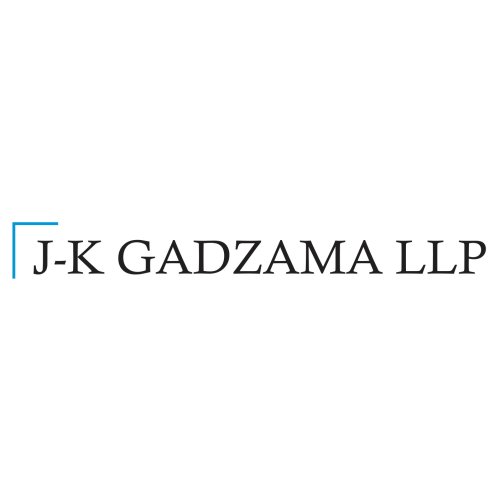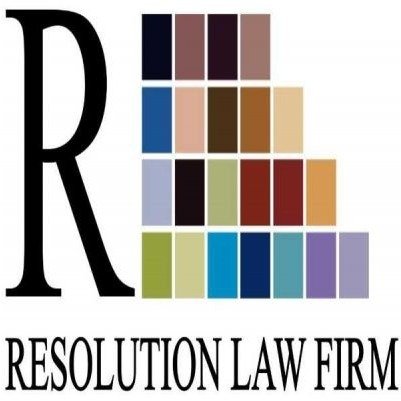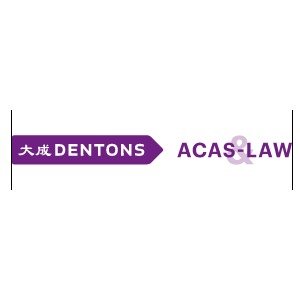Best Hiring & Firing Lawyers in Abuja
Share your needs with us, get contacted by law firms.
Free. Takes 2 min.
List of the best lawyers in Abuja, Nigeria
About Hiring & Firing Law in Abuja, Nigeria
Hiring and firing in Abuja follow the laws stipulated by the Nigerian Labour Act. This legislation concerns employment contracts, rights, and responsibilities, with specific rules about termination of employment, redundancy, and unfair dismissal. These are comprehensive laws designed to protect the rights of both employers and employees. However, these laws can be complex, hence the need for proper understanding and professional guidance.
Why You May Need a Lawyer
Certain scenarios necessitate the need for a lawyer. These include situations of unfair dismissal, when there are complexities in the employment contract, or when there's a need to understand the intricate details of labor laws before firing or hiring. A lawyer can also help in cases of wrongful termination cases, workplace discrimination, or issues relating to benefits and compensation. Legal advice is essential in guiding both employers and employees on the right course of action to take to ensure the fairness and legality of hiring and firing procedures.
Local Laws Overview
The major legislation governing hiring and firing in Abuja is the Nigerian Labour Act. The Act provides that a contract of employment can be terminated by either party given notice. It stipulates that where a worker has been continuously employed for up to three months, the length of notice shall be a minimum of one week. For contracts that have been continuously effective for up to five years, the notice period extends to one month. The Act also prohibits termination of employment based on union activities or discriminatory reasons. Severance pay is not mandatory except stated in individual contracts or collective agreements.
Frequently Asked Questions
1. Can an employer terminate an employee without notice in Abuja?
Under the Nigerian Labour Act, an employer is required to give notice before termination. The length of this notice varies depending on the duration of the employment.
2. Is it legal to fire someone because they joined a union?
No, it is illegal to fire an employee because of their participation in union activities. Such an act is considered unfair termination under the Labour Act.
3. Is severance pay mandatory in Abuja?
Severance pay is not mandatory according to Nigerian labour laws. It is only mandatory if it is stipulated in individual contracts or collective agreements.
4. What can I do if I believe I have been wrongfully terminated?
If you believe you have been wrongfully terminated, you should consult an employment lawyer. You may file a lawsuit against your employer, depending on your situation.
5. How can I find a good employment lawyer in Abuja?
Several resources can guide you in finding a reputable employment lawyer. Some viable options include online lawyer directories, law firms specializing in employment law, or getting recommendations from people who have been in similar situations. It's crucial to evaluate their experience and expertise before making a decision.
Additional Resources
You could visit websites like the Nigerian Bar Association and the Ministry of Labour and Employment for more information. For additional resources, you may contact organizations like the International Labour Organization (ILO) and the Nigerian Employment Consultative Association (NECA). These bodies offer resources and help related to employment laws and rights.
Next Steps
If you need legal assistance regarding hiring and firing, the first step is to consult an employment law attorney. Using online resources or directly contacting the Nigerian Bar Association can help you find a lawyer suitable for your needs. It's advisable to prepare all relevant documentation and information related to your case for the initial consultation to get the most beneficial legal counsel.
Lawzana helps you find the best lawyers and law firms in Abuja through a curated and pre-screened list of qualified legal professionals. Our platform offers rankings and detailed profiles of attorneys and law firms, allowing you to compare based on practice areas, including Hiring & Firing, experience, and client feedback.
Each profile includes a description of the firm's areas of practice, client reviews, team members and partners, year of establishment, spoken languages, office locations, contact information, social media presence, and any published articles or resources. Most firms on our platform speak English and are experienced in both local and international legal matters.
Get a quote from top-rated law firms in Abuja, Nigeria — quickly, securely, and without unnecessary hassle.
Disclaimer:
The information provided on this page is for general informational purposes only and does not constitute legal advice. While we strive to ensure the accuracy and relevance of the content, legal information may change over time, and interpretations of the law can vary. You should always consult with a qualified legal professional for advice specific to your situation.
We disclaim all liability for actions taken or not taken based on the content of this page. If you believe any information is incorrect or outdated, please contact us, and we will review and update it where appropriate.

















